Arya Marvazy is a first-generation Iranian-Jewish American born in the bustling metropolis of Tehrangeles, CA. He is a travel addict, LGBTQ educator and advocate, sunset chaser, and passionate gefilte fish naysayer.
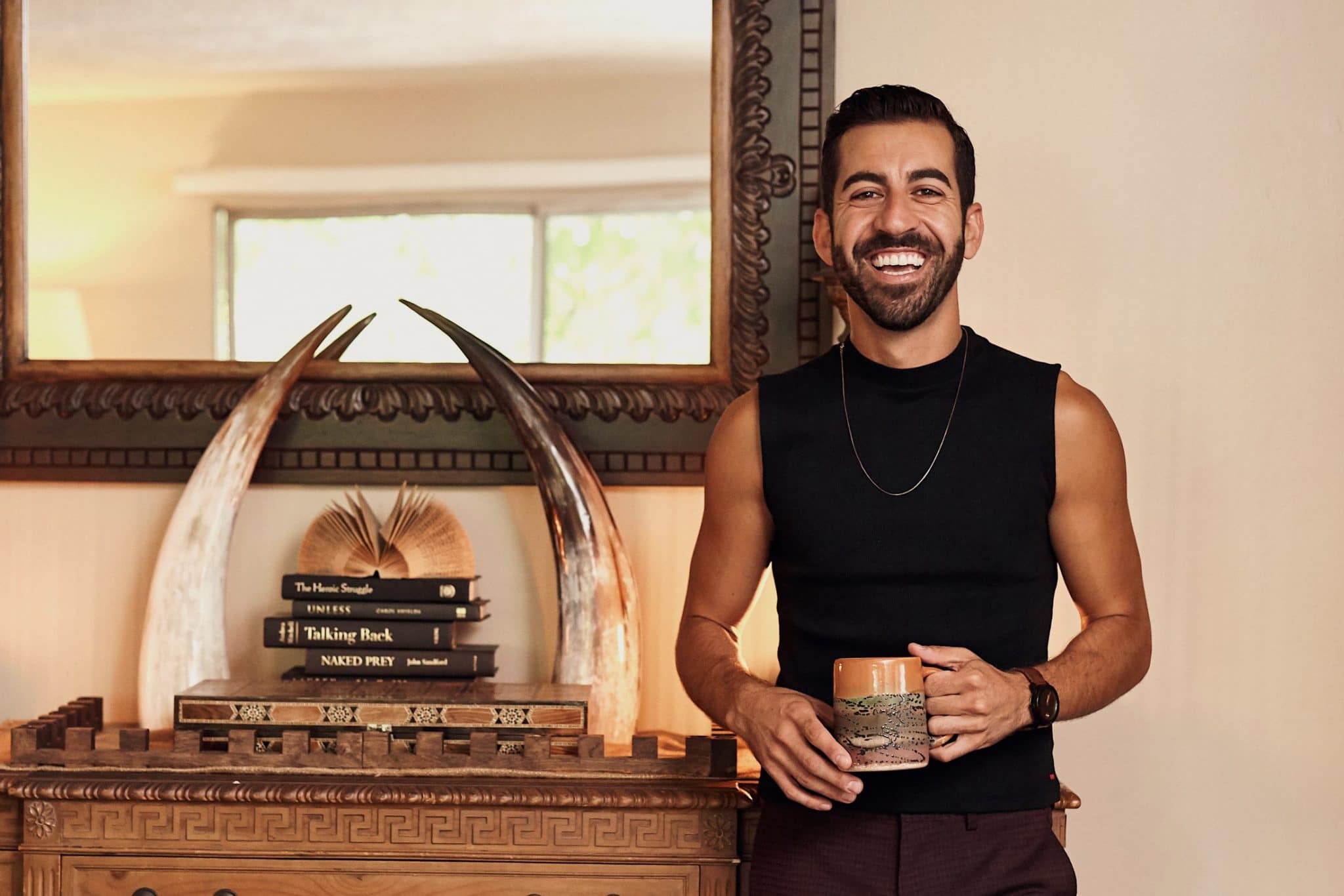
Describe your background.
I’m a first-generation American born to Iranian refugees who came here escaping the Islamic Revolution.
Someone bought your things from you, got you to the airport, then took you to the border at Pakistan and passed you off to the next set of smugglers. In ’82, they got to New York. In that same year, they ended up in LA, where there is the biggest Iranian-Jewish population in the world.
I’m very proud to have been born and raised in this loud, proud, vibrant Iranian-Jewish community in Los Angeles.
In elementary school, middle school, and even the beginning of high school, I didn’t connect to my Iranian peers, though. My friends were black, white, Latino, Asian. I had a birthday party, and everybody rolls up, this beautiful United Nations of friends, and my mom, in an inquisitive way, asked, “Don’t you have any Persian friends?” I said, “These are the people I connect with.”
I was a sociable guy, an insatiable optimist. That did help later in life in terms of coming out of the closet and the journey of being in it.
I grew up intensely close to family. My grandmother is my world. My mother is my world. I’m her carbon copy in male form.
Between 18 and 29, save one year in the middle, I was out of LA.
There’s something that I call the Queer Exodus, which is this concept of LGBTQ people leaving home to find their most authentic selves elsewhere.
Putting myself in a space where I got to redefine myself and come into myself in the most real way was immensely powerful.
Is there a story about the meaning of your name?
Aryan as we understand it today, has been bastardized. People think about Aryan as the pure, white race. Aryan in Farsi is actually the Persian race, with roots in Iran. So, Arya is a name that is about a sense of Iranian pride.
At a younger age, I remember thinking, “I like the name Sean.” To this day, my Starbucks name is Sean, because they botch Arya everywhere I go.
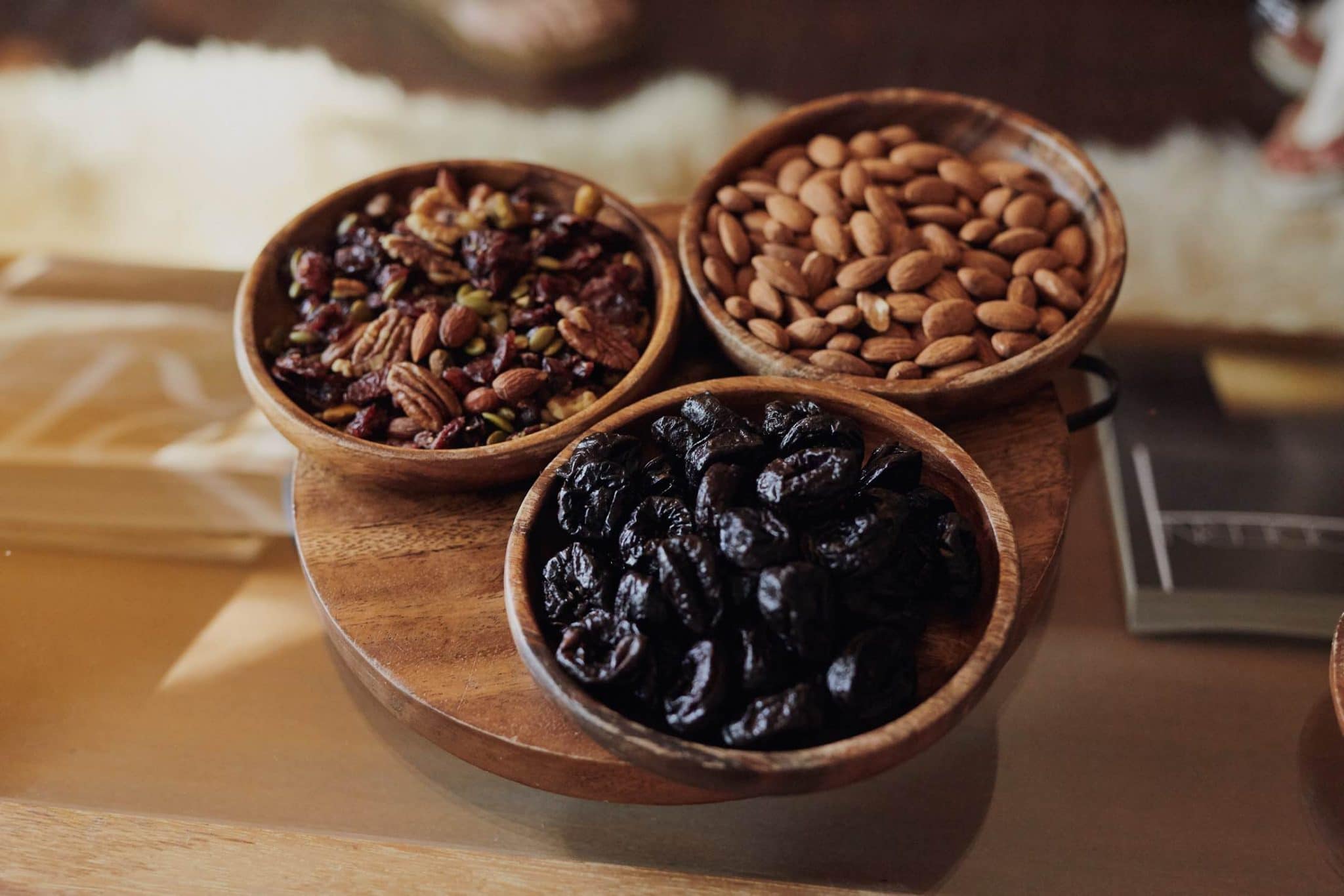
What were you like as a kid?
I was mischievous as all hell. I was curious. I was that kid who could engage my peers at the age of five or sit with a few 73 year olds and talk them up.
That still applies. I take risks often. In particular, when I travel.
There are stories I save to tell once I’m home safe.
One of my best stories is from Jordan. My friends and I had gone to Petra against the will of some of our parents. There’s a Bedouin man laying there in his cave, and I go up and ask, “How’s it going? What’s up?” He talks to us about his life. The sun is setting, and they had already said on the loud speaker, “Get out of the park.” I saw some people at the top of this site, and I asked, “Can you get us up there?” He said, “No problem.”
This guy calls his friend, Mahmoud, and the two of them take us up there. The sun is setting as we are on top of this mountain, then we’re in the pitch black desert. They say, “We’ll get you back to your hostel, no worries.”
They take us on their donkeys, but, on the way, they stop at their own home. His mother serves us tea. When they drop us off at the hostel in time for dinner, they say, “If you’d like to go out to our tent in the middle of the desert tonight, we’d love to show you.” We say, “Of course!”
As we’re leaving the hostel after dinner, the front desk guy asks, “Where are you all off to tonight?” I say, “We’re going with some Bedouins to their tent in the desert.” And he responds, “Absolutely not. Forbidden. There’s no chance in hell. These people are meant to kidnap and rob.”
We get out of the hostel, jump into the back of this guy’s pickup truck, and off we go with Mahmoud and proceed into pitch darkness. There was a moment where I turned to my friend and said, “There is absolutely nothing that we can do right now. We’re completely in their hands.” They get to the middle of nowhere, flick on their lights, and there is a tent. They start up a fire. We drink and eat some sunflower seeds from Israel and sit there and connect for two and a half hours in the most rich, beautiful way.
Just four Jews and two Bedouins speaking about our identities.
The front desk guy had told us, “If you’re not back here by midnight, my doors are locked.” Without exaggeration, at 11:58 PM we’re running back inside, yelling “Thank you so much for taking care of us.”
What advice would you give your teenage self?
In those moments of questioning my self-worth and value, I wish I could tell myself, “Know that in every moment in time you are whole. You are where you need to be. Things that happen are happening for you not to you. These are pieces of a journey. It’s a puzzle that will, when you zoom out later, make a lot more sense. For the time being, be in these moments, good and bad.”
I’d say, “The struggle that you’re going through now is going to become the most powerful part of your life.”
My dark days in the closet ended up leading me to my life as an activist.
I wouldn’t change a single part of any of that. I’d want to offer my younger self that sense that things are what they are because they should be.
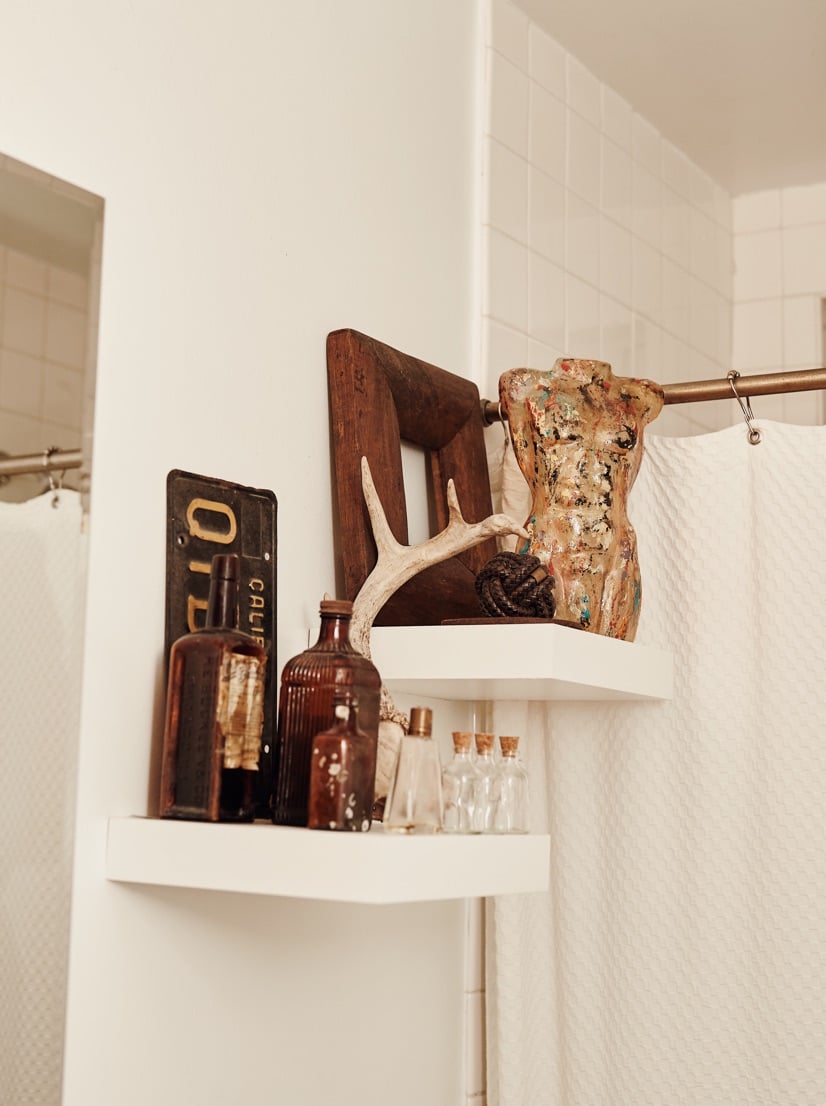
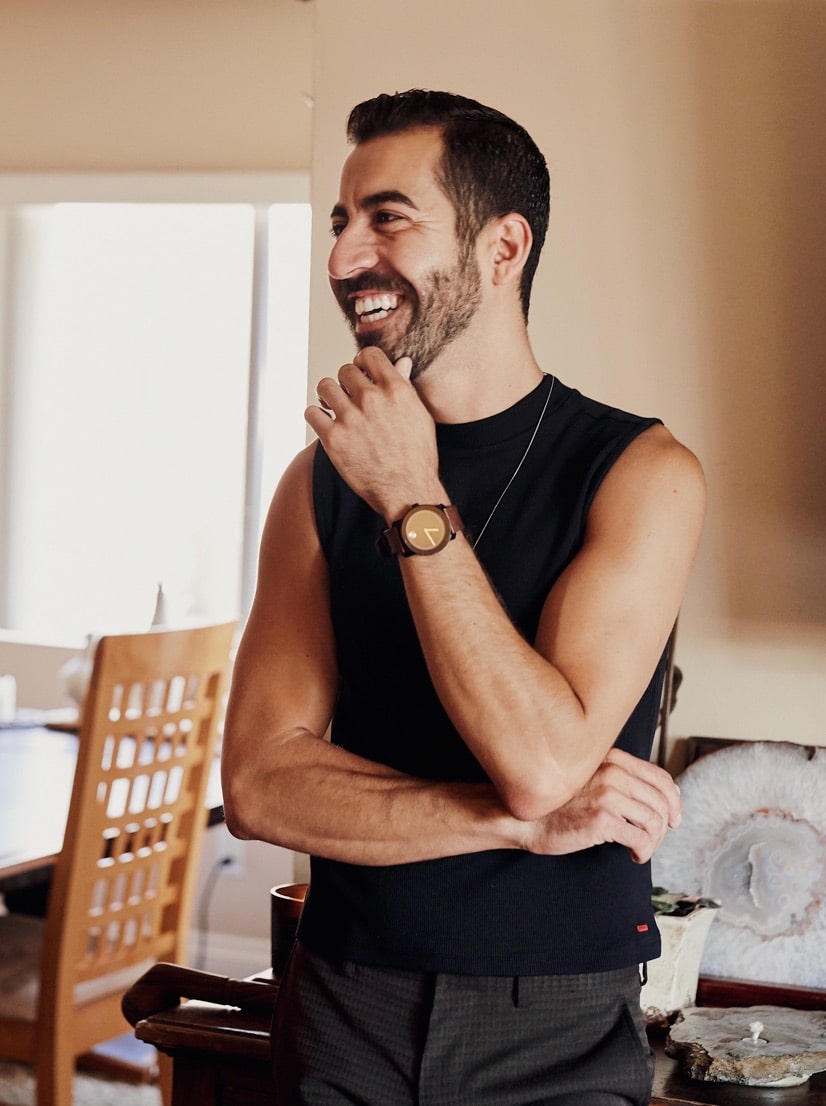
How did Judaism play a role in your upbringing?
Iranian Jews don’t really say, “I’m just Iranian” or “I’m just Persian.” We add “Jewish” to that because it’s a marker of not identifying with the Islamic Republic. We are a powerful micro-community that takes such pride in this intersection of identities, faith, and culture.
There is nothing more sanctimonious and powerful and consistent than Shabbat. I’m 32 years old and, when someone asks me, “What are you doing Friday night?,” I’m texting to check and see what our family is doing. I want to be at Shabbat dinners whenever I can be.
The High Holidays, always. Keeping Passover, fasting on Yom Kippur, brises, bar mitzvahs, and really beautiful Jewish weddings. All of those with certain tints of Iranian identity.
As an undergrad at UC San Diego, I credit AEPi and Hillel. I never thought I would join a fraternity in a million years, but they really did turn out to be this group of gentlemen, mensch-y guys that weren’t there for just partying. It was this beautiful support network. Hillel made an effort to reach what they call “Jews on the periphery.”
Few people know what it means to be a Sephardic or Mizrahi Jew.
Ashkenazi Judaism is the standard in America, and I wanted to show what it means to be a Persian Jew and other elements of Middle Eastern Jewry. So, I started JOPA, the Jewish Organization for Persians and Americans. It was then that I began connecting to my Judaism in a much more personal, independent, individualized way.
You’ve lived in LA, San Diego, DC, and Tel Aviv. How have the different places you’ve lived informed your Jewish practice or identity?
San Diego was where I began the journey towards knowing the Jewish community in a more intimate way, embedding myself as a leader within it, thinking about the ways that I might transform it.
Israel was interesting because it’s the land of the Jewish people, and I don’t know that I became closer to my Judaism in any which way. I became infinitely closer to the land of Israel, and to the people of Israel, and to what Israeli identity means in all of its nuances. I don’t mean to say that I distanced myself from my Judaism, but the practice was less regular.
It became Judaism-lite for that year.
Then, in DC, I was back to being active, embodying my Judaism in pretty much everything I did, from my career path to my personal life to my networks. Nice Jewish Boys was one of the first intersections of Jewish and queer identity that I ever got to experience.
And, LA. Why do we call this place Tehrangeles? What did Iranian Jews do when they came here? They built a micro-community with a powerful and rich capacity to stay Persian and Jewish outside of Iran. My grandmother, who’s been here for about 40 years, speaks a few sentences of English. Why? Because her grocer and her baker and her banker and her doctor and her friends and her neighbors and her life is Iranian Jews.
I don’t blame them.
From a bird’s eye view, you might call it xenophobic and say how wrong it is to be so insular.
I do feel people should expand their horizons. But, not all American Jews have a recent history of trials and tribulations and hardships just to live one’s authentic self. Whereas, for my community, being smuggled through the mountains of Pakistan had everything to do with being Jewish and maintaining a strong Jewish identity here is immensely valuable and important.
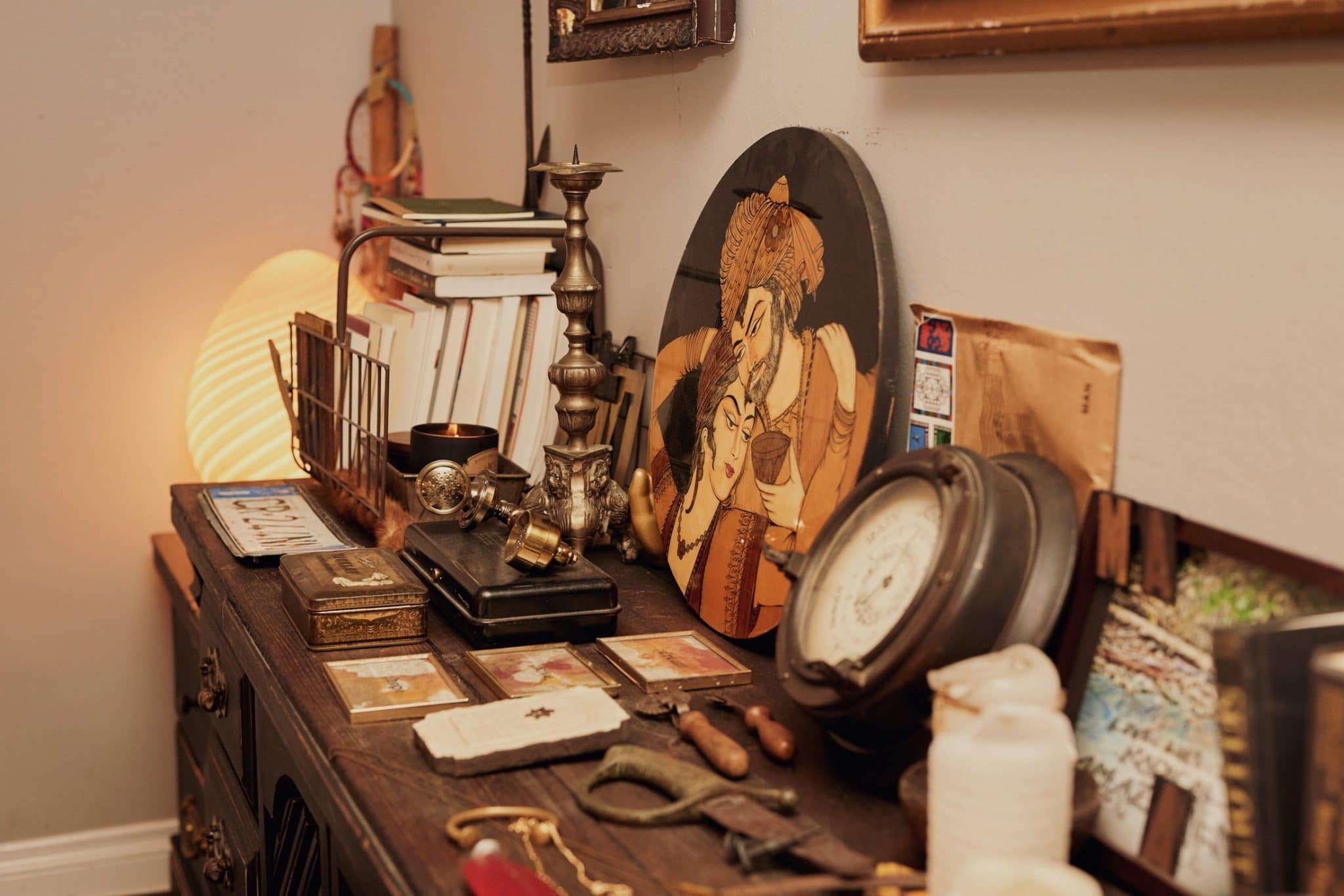
Do you have a personal mantra?
It’s a Rabbi Abraham Joshua Heschel quote. It’s something like, “Our goal in life should be to live in radical amazement. Wake up in the morning and assume that everything is a gift. There is gratitude to be expressed for every minute detail. To be spiritual is to be amazed.”
That is my everything.
There’s not that much money in my bank account, but I am so blessed.
A family that completely loves me, work that is unbelievably fulfilling, opportunities that surround me at every turn. So long as I keep that lens of infinite gratitude, then I think that I will continue to be as happy and as optimistic and as positive as I am.
When do you feel like the best version of yourself?
When I’m helping others. One of the hardest parts of my struggle was not seeing myself reflected and fearing, “I will have to leave my entire community. I will have to leave everything to be able to be myself.” To limit that from happening for someone else is the important thing.
At 22, I had never seen myself represented in my community.
I didn’t know an out gay man who was healthily and happily who they were but still a part of the Iranian Jewish community.
It took an Iranian Jewish AEPi brother who chose to come out to me one night for all of my guards to come down. That began a seven-year journey to eventually telling my parents that I am gay.
When I came out, I explained to my parents, “I’m going to be extremely loud about this. I’m going to scream it from the top of every mountain. If one Iranian person takes their life and commits suicide – which is a very real possibility within our community given the way that homophobia is this comfortably expressed part of our lives – I will consider there to be blood on my hands. I would have had the capacity to do something and I would have turned away from my responsibility to make this world a better place.”
They accepted it, and I posted my coming out video on Facebook. It was strangers who were very negative and attacked me online, but the ones who were in our lives called my mother to congratulate her and tell her how proud she should be about the son she had.
I feel like my best self when I’m coming off of a call with someone, like this Orthodox boy in Brooklyn who I’ve been speaking to for a year and a half, and he says something like, “Before we were having these conversations, I really felt like there wasn’t hope.” I definitely thought about those dark moments. That’s the impact that I want to be having.
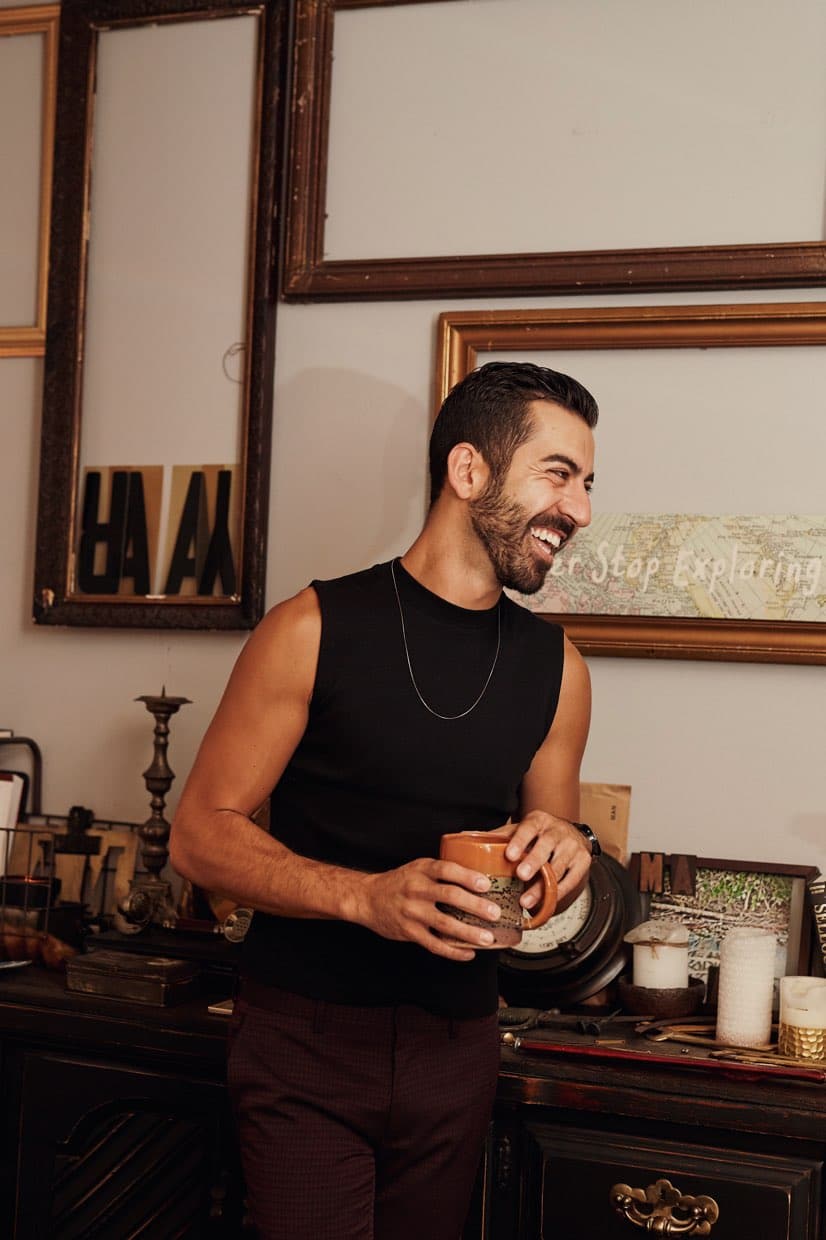
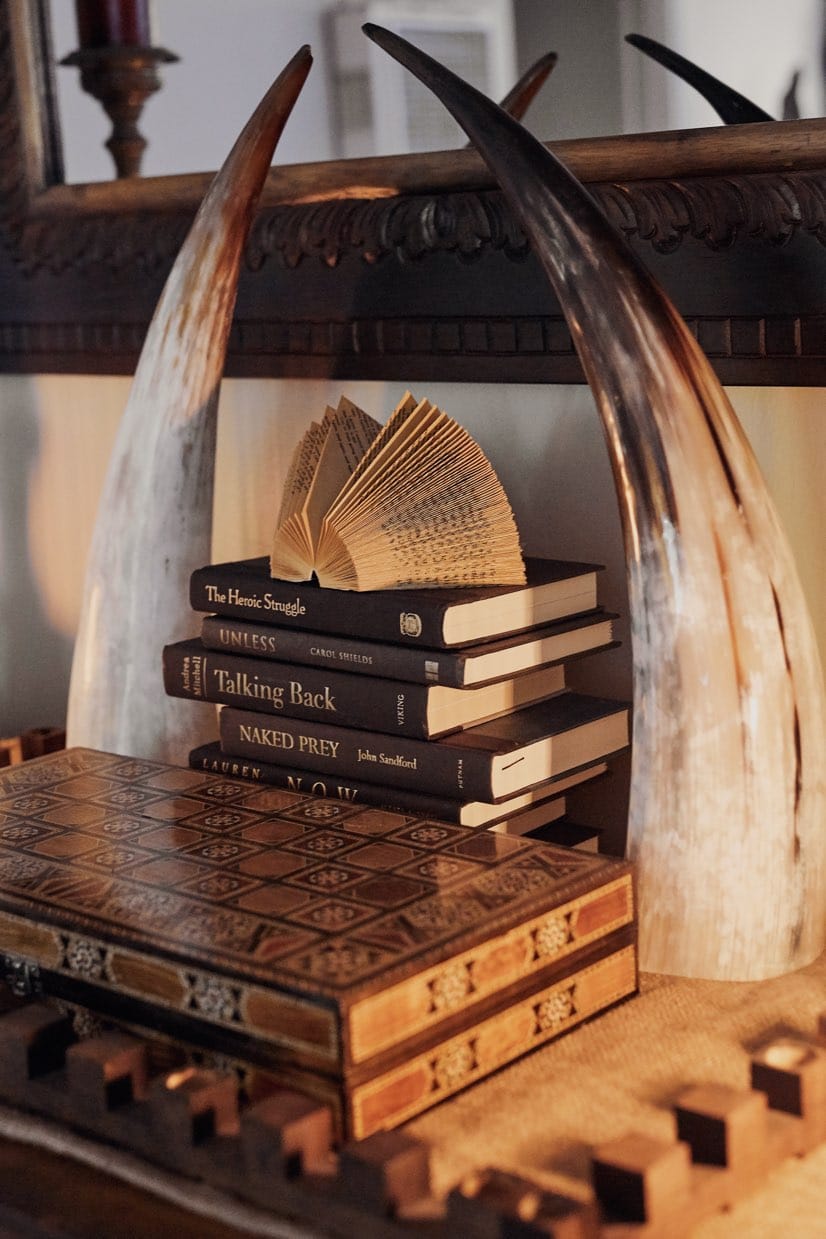
What’s something about yourself that you’re working on?
I am bad at balance.
I’m getting burnt out and I’m only 32. I have so much ahead of me, so much that I want to accomplish and experience in this world, and it’s not possible at the rate that things are going. Racing from one thing to the next is not a good feeling.
So much has happened in the last decade of my life. I haven’t paused enough to really process all of it and internalize it. What did this all mean? Sometimes, I’m not feeling the greatness of certain things, it’s just, “Now, onto the next thing.”
It is okay to do nothing. Stop. Breathe.
Two, I want to find love and have a family. To have that, I need to make the space. I would have to slow down enough to date and let someone in. I want to share this life and this experience and journey with someone else.
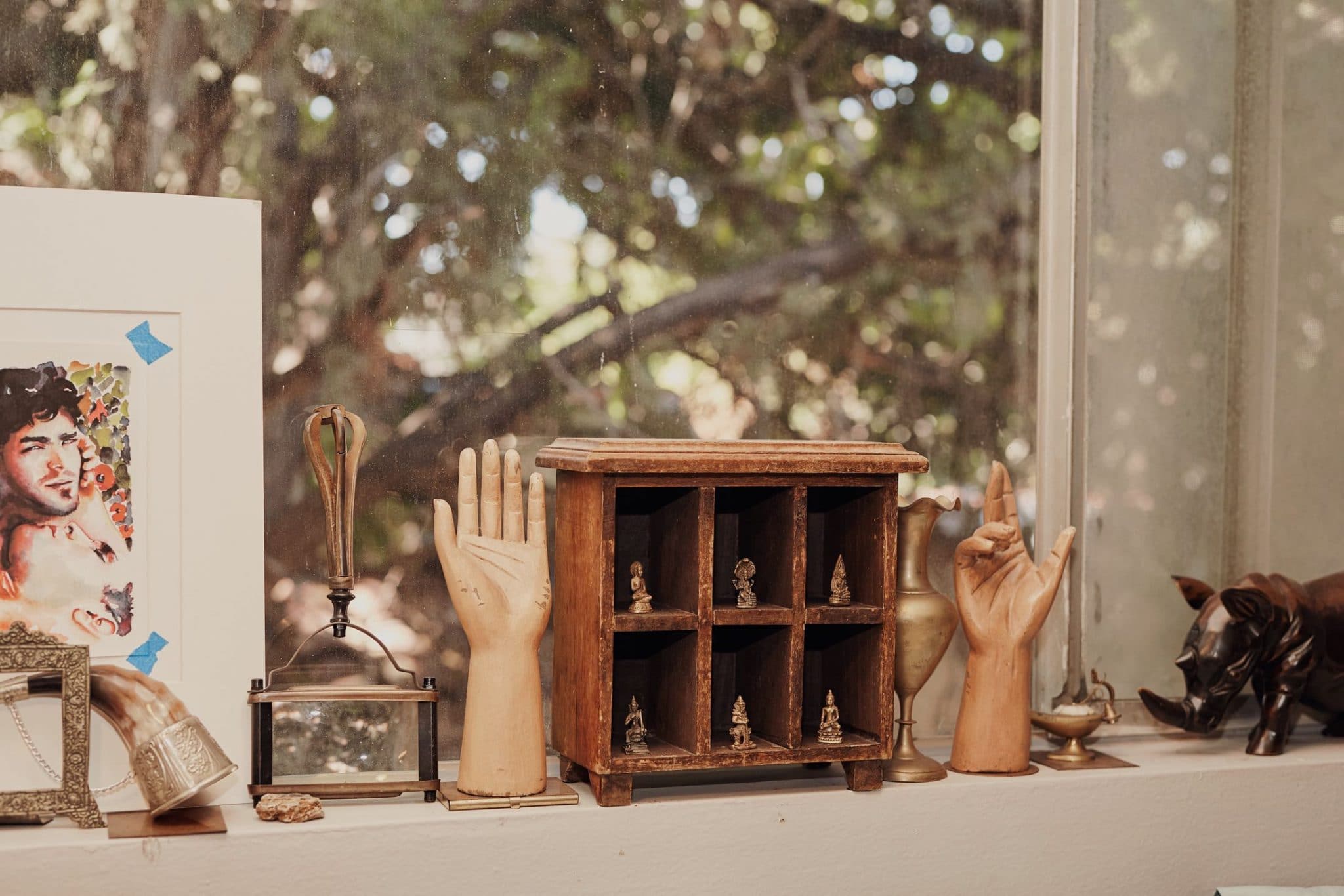
Favorite places to go or things to do in LA?
The Lake Shrine meditation sanctuary in Malibu. That is one of my slices of Heaven. It’s a place to pause and reflect and be away from the world.
Hiking Runyon Canyon is my meditative practice. I do it just before sunset so I can sit up there and watch the sun set over LA. It’s one of those moments where I think, “Where do I live?! Look at this spectacular, luxurious place that is my background.”
What’s your favorite place on earth?
So hard for a traveler.
Sri Lanka, because it was the Eat, Pray, Love trip where I accidentally ended up somewhere for a week alone and it was this unbelievably transformative experience.
There’s an island chain in the south of the Philippines called El Nido. That is the single most spectacular place on the planet. God Willing, if I do find the love of my life, I will propose to him on on a kayak in the Big Lagoon.
Buenos Aires, one of the most infectious, beautiful, rich cities in all ways: food, culture, gorgeous people, and a rich, Jewish identity.
There’s no greater way to connect to humans on this planet than to travel and be with them.
Not a mimosa by the pool. I think of traveling – not vacationing – as understanding and meeting the culture and the people that are authentic to the place and letting that be the focus and intention.
Favorite and least favorite Jewish food?
You know I’m going Persian!
Tahdig, which is the burnt rice at the end of the pan, is what our family fights over every week. We eat it with ghormeh sabzi on top of it, which is one of our stews. It has five different kinds of greens and vegetables, it has red beans and lamb. It makes the tahdig a little soft but still totally crunchy and has the juice that is mouthwatering.
I will never wrap my head around gefilte fish and I don’t intend to. I’m sorry if you love it.
Is there anything else that you want to share?
We didn’t get to touch on what it’s been like to be an activist in the Iranian community. For a community that is very much on the brink of coming to terms with LGBTQ rights and still has so much work left to do, my message to the broader community is that we’re doing amazing.
There is immense room for growth, but there are so many more parents being accepting, there are so many individuals coming out as a result of the activists that are making this more viable and possible.
Last month, myself and a collection of Iranian LGBTQ activists were published on the cover of Tehran Weekly Magazine. For the first time in history, this magazine agreed to do a cover story about the movement for Iranian LGBTQ equality. If you were to ask any single one of us if we could have dreamt of this day, the answer would be vehemently no. The ten people on that cover are a perfect example of the family that it’s taking to bring Iranian queer life to a new stage in our evolution.
I want to share a message of hope.
While there is so much room to debunk ignorance and combat homophobia that is really deeply embedded in our culture and ethnicity, we’re doing damn good. Let’s continue to embrace a progressive mindset on topics of homosexuality and feminism and the ways that we think about the equality of members within our community.
Photos by Marissa Alves
Thank you for visiting Arq!
Arq is no longer publishing new content. We hope you'll enjoy our archived posts.